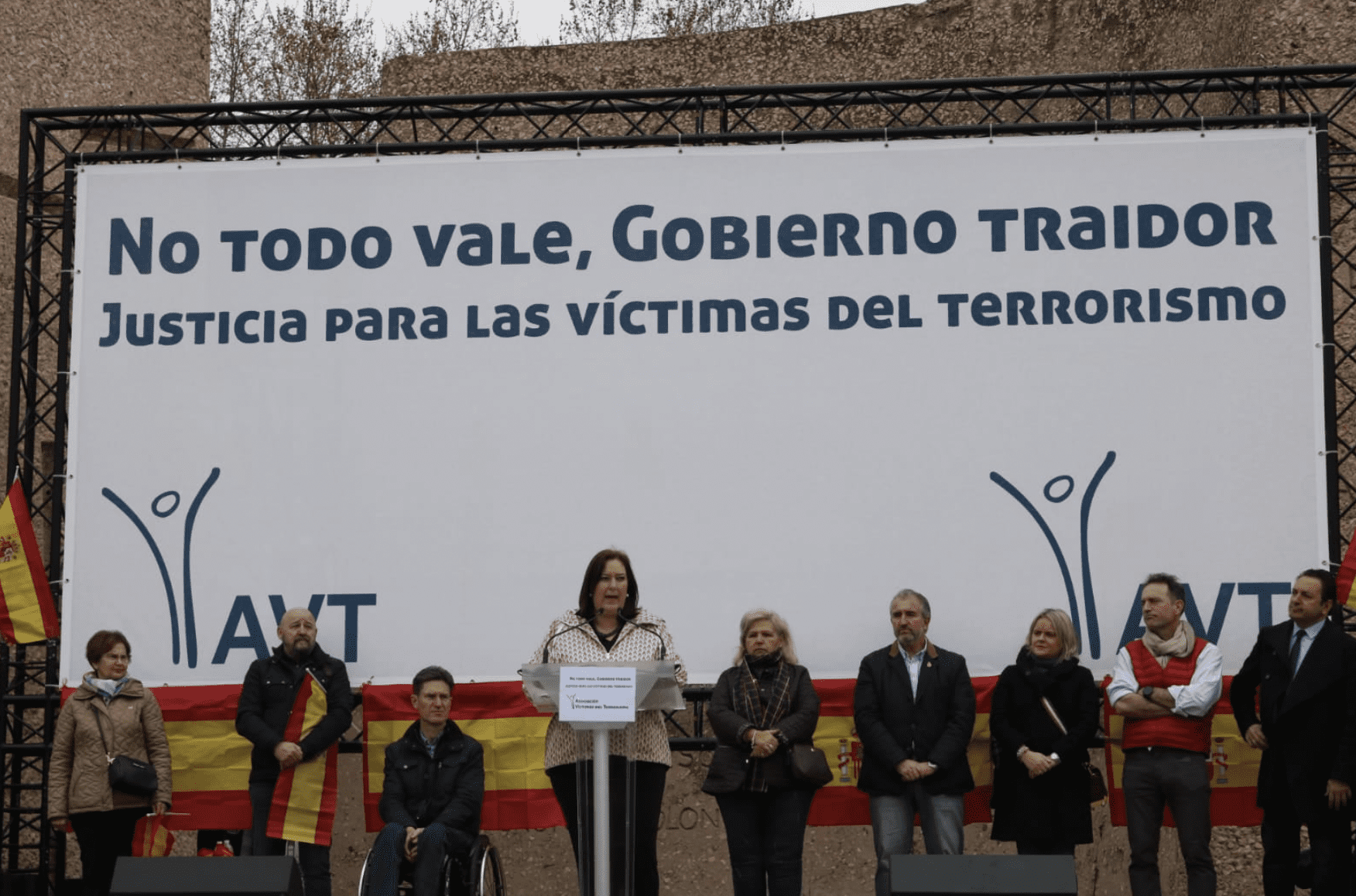
Spain’s Association of Victims of Terrorism has denounced the country’s left-wing government for granting political favours to convicted terrorists and for whitewashing independentist terrorism in Spain’s history.
The present government—a coalition of the left Partido Socialista Obrero Español (PSOE) and the neo-communist Unidos Podemos—is in power, thanks to the country’s fringe nationalist-independence parties. One of those is Euskal Herria Bildu (EH Bildu), a Basque pro-independence party many of whose members belonged to the Basque terrorist organization ETA (Euskadi Ta Askatasuna, or “Basque Homeland and Liberty”), that injured, killed, or kidnapped 7,000 people between the 1970s and 2012, when the group disarmed.
Currently, approximately 200 ETA members are still imprisoned in Spain and over 300 ETA crimes have not been solved. But in its three years running the country, the government of President Pedro Sanchez has granted more favours to ETA prisoners than any other government.
As a policy, ETA prisoners are distributed in jails throughout Spain, outside of the Basque Country and Navarra, which also has a strong Basque independence contingent. The policy has been in place since the 1980s as a means to break up the gang mentality and discipline that continued among ETA members jailed together, or incarcerated near their hometowns. The separation proved fruitful, and led to some ETA convicts repenting and collaborating with authorities. Privileges, such as imprisonment closer to family, have, until now, been granted on the basis of repentance, collaboration with authorities, or for certain humanitarian reasons.
The present government, though, has moved 43% of ETA prisoners to the Basque Country and Navarra, where not only are they closer to their families but where they are also in a prison system favourable to granting them additional privileges such as early release. Suspicions that these changes were, in reality, political favours to win the support of EH Bildu, was confirmed earlier this year when the Spanish newspaper El Confidential published the contents of an investigation by the Guardia Civil, a Spanish police force.
The report contained the unencrypted mobile phone messages of Jose Antonio López Ruiz, a convicted ETA terrorist responsible for 13 murders and 16 attempted murders. He was released from prison in 2013 after serving 26 years of a 1,210-year prison sentence and has since been an advocate for other ETA prisoners. He was arrested in January 2020 for organising public homages to ETA members released from prison.
When the police searched his mobile phone they found messages and evidence of meetings between him and the Secretary General of Penitentiary Institutions, Ángel Luis Ortiz. The prison authority is under the Ministry of the Interior; Ortiz is a close collaborator and confidant of Spain’s Minister of the Interior, Fernando Grande-Marlaska.
The messages showed that Ortiz had been sharing confidential prison information with Ruiz and others in the ETA environment, and coordinating for privileges for ETA prisoners since at least 2019. The messages show the specific requests from, and expectations of, Ruiz and others:
“Ask Ortiz that the Zaballa prison accept [sic].”
“They will also give him special treatment.”
“Today’s message from Ortiz.”
“Next Tuesday I have a new meeting with Ángel Luis. Do you have anything specific?”
The report also reveals the crucial role of two Basque politicians in facilitating the contact between the Ministry of the Interior and the ETA members. They are the lawyer and deputy of the Basque Parliament for EH Bildu, Julen Arzuaga, and the former Minister of Justice of the Basque Government, Joseba Azkarraga—also currently the leader of the support network for ETA prisoners, Sare.
Watching convicted terrorists receive political favours simply to keep the current government in power is a knife in the heart of ETA victims and their families.
“They are moved to where their families can visit them, while we have only tombs to visit,” the AVT (Association of Victims of Terrorism) reminded the government in a press release.
Grande-Marlaska was once considered a hero in the country’s fight against ETA. In 2017, AVT awarded him a medal of honour for his work in bringing ETA members to justice while a judge. At a protest last month, with demonstrations against the government’s policy toward ETA prisoners, the president announced that the association was rescinding that honour.
According to the AVT, the government has also whitewashed the history of terrorism taught in the Spanish history curriculum. In April, the government published a new curriculum in line with its 2020 education law.
“The new text includes only the study of terrorism as a concept, decontextualized from the historical moments in which it has occurred,” the AVT stated in a press release. “From the AVT we denounce a clear political intention to remove ETA and other terrorist groups that have attacked our country from textbooks in order to be able to rewrite history and whitewash what terrorism has meant in Spain.”